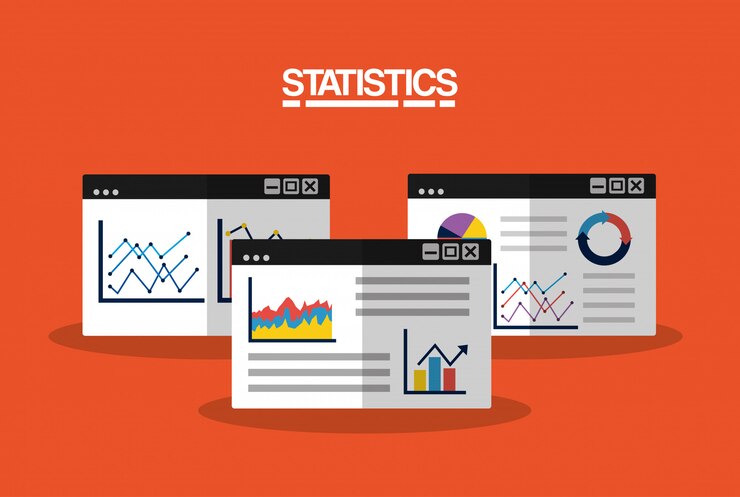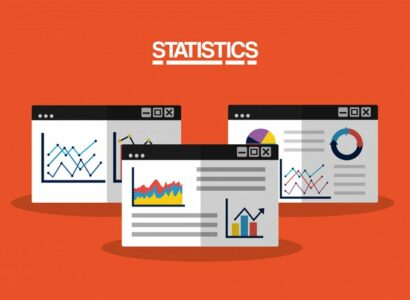Big data is a term that, despite being present in the e-commerce industry for over a decade, continues to be an integral part of the online shopping sector. Experts claim that big data is now an inseparable part of the e-commerce landscape, allowing business owners to explore new opportunities through new statistics and insights.
Using big data in retail and e-commerce will remain a crucial aspect in the coming years, and it does not seem that the trend will slow down anytime soon. As technology advances, an increasing number of entrepreneurs decide to dive into the world of big data. You can take your custom Magento store to new levels with big data analytics tools, too!

How Do E-Commerce Businesses Use Big Data Analytics?
Amazon, one of the biggest e-commerce businesses, is known for its extensive use of big data analytics. They collect and analyze vast amounts of customer data to optimize their marketing strategies, plan future updates, and learn more about customer behavior.
You don’t have to own a giant corporation like Amazon to benefit from big data, though. Nowadays, business intelligence solutions that allow users to leverage big data analytics are accessible to e-commerce businesses of all sizes. One of the easiest ways to get insight into your customer behavior is to use an online data analytics tool. Google Analytics 4 is a popular choice, and you can easily harness its power.
Benefits of Google Analytics for Magento Stores
With Magento 2, store owners have the possibility to integrate Google Analytics into their e-commerce platform without having to possess special coding knowledge. The only things needed are access to the admin functions in Magento and a Google account.
Google Analytics is easy to set up and provides valuable insights into website traffic, user behavior, and conversion rates. It can help you come up with new strategies, identify potential problems, and make data-driven decisions to optimize your online store. Integrating Google Analytics with your custom Magento store opens up a world of possibilities for increasing your store’s performance and, in turn, your revenue.
How to Add GA4 to Your Custom Magento Store
Fortunately, implementing Google Analytics into your store is a rather straightforward process. We will take you through the process step-by-step to help you make the most of this powerful tool without hassle.
Step 1: Make a Google Analytics Account
To register for a Google Analytics account, go to the Google Analytics website and sign up using your business Google account. These accounts are free, and no payment information is required.
You don’t have to create a new account for this purpose; you can also use a pre-existing one. One GA4 account can be used for analyzing more than a single website or app.
Step 2: Set Up Your Google Analytics Property
Once you sign in to the Google Analytics panel, you will be asked to provide some basic information about your business, like website name, URL, business size, and time zone – nothing overly complicated. You can also choose what your objectives are, so Google can tailor your GA4 experience to your specific needs.
Step 3: Set Up the Data Stream
Now, for the integration to work, you need to get a Global Site Tag for your store. Go to the Data Streams section of the Analytics admin panel and choose the source. This can be either a website or an app, so for a Magento 2 store, you need to pick the first option.
Put your store’s URL in the setup window, and a Tagging Instructions tab will appear. In the Add New On-Page Tag section, you will find your brand new Global Site Tag script. Copy the entirety of it and head to your Magento 2 admin panel.
Step 4: Set Up the Site Tag in Magento 2
Once you are logged into your Magento Admin, head to the Design -> Configuration section and choose the view for which you want to add the tracking tag. Then, expand the HTML Head section and paste your code in the Scripts and Stylesheets window. Save your configuration.
Lastly, go to the Cache Management section of your Admin panel (you can find it under System -> Tools) and click on the Flush Magento Cache button to reload your store. It should now have the Google Analytics 4 tag implemented, allowing you to track and analyze the performance of your website.
Google Analytics 4 Data for Your Business
Now that you have the Global Site Tag implemented in your store, you can start monitoring and using all the valuable data Google gathers for you. Through your Google Analytics account, you can access different panels and dashboards to see some of the metrics.
All the information given will undoubtedly be interesting and helpful in understanding how your website is performing, but it is not the end-all-be-all. While Google Analytics 4 will provide you with general knowledge about things such as page views, user location, outbound clicks, and search data, it will not be able to provide you with specific metrics that e-commerce businesses require.
To make sure your analytics include the full spectrum of data needed for the success of your online store, it is best to get a comprehensive, complete tool with a wide range of features. There are Magento 2 extensions that can track very specific metrics (such as how many times a product was added and removed from a shopping cart), monitor the conversion rate, and track coupon code usage.
Google Analytics Solutions for Your Custom Magento Store
If the statistics Google provides to you cost-free are not enough for your business needs, Magento developers can help you. Companies specializing in custom e-commerce development will listen to your requests and tailor a Google Analytics solution specifically for your store.
You will not need to figure out how to implement or configure additional tracking tools or third-party extensions, as Magento developers can handle it all for you. They will make sure everything aligns with your goals and needs, and will be able to tackle any challenges that may come during the implementation process.
Magento and Google Analytics: A Perfect Match
Whether you choose the free and readily available version of Google Analytics or upgrade your Magento 2 store to include some new big data analytics extensions, you can use the information you get to grow your store.
Big data in retail and e-commerce is not to be underestimated, and by wisely using the insights to develop new strategies, you can make it a powerful tool for your business. With or without the help of custom e-commerce development services, you can turn every snippet of data collected into a valuable gem.


